- Home
- Steven Brust
The Paths of the Dead Page 36
The Paths of the Dead Read online
Page 36
"Well, what then is your opinion of death?"
"It is the limitation of one's ability to reach certain phases of reality."
"And then?"
"It can sometimes be inconvenient."
The Enchantress nodded, and turned to her apprentice, saying, "Well?"
Sethra the Younger nodded. "I comprehend."
"And then?"
She bowed to their guest saying, "My friend, for so I hope I may call you, you are not simply a necromancer. As far as I am concerned, you are the necromancer. If I have the chance, well, I hope to learn a great deal from you."
The necromancer bowed.
"And then?" said the Enchantress.
"Well," said Sethra the Younger, "it is my hope that I will learn at least enough so that—"
"Yes? So that?"
"The Gods! So that I won't mind waiting so much!"
Chapter the Thirty-Second
How Röaana and Ibronka Arrived
In Adrilankha, and the
Greeting They Received There.
Ibronka, Röaana, and their servant, guided by maps and information supplied by the worthy Clari, arrived in Adrilankha early in the morning, as the port city was just beginning to stir. None of them had ever been in a city of such size, and so a great deal of time was spent doing nothing more than looking around: In one direction was the West Market, that large circle filled with stalls and places for carts and even a few brick buildings, as well as the Port Exchange Building, which market, by itself, was the size of any of the villages they had passed through (if the reader will remember that they did not actually pass through Hartre, rather stopping on its edge). In the other, they observed the majesty of the Six Domes along Cliff Road, sparkling of silver, and looming over them the Imperial Customs House, its distinctive red paint having long ago faded to a sort of pale orange, but still impressive for its octagonal shape and its magnificent bell tower. Then, the Pavilions of the Gods, the tops of which, red, green, yellow, and blue, could be seen in all their elegant sweep over the more humble dwellings—which dwellings themselves were of greater grandeur than any the Tiassa or the Dzur had seen upon their journey. And then the Port Authority, all of white, with its watchtower like a golden needle looking out over the sea, the port, and the city.
Soon, in fact, they found themselves standing still in the middle of Lower Kieron Road, simply looking around in awe, and pointing out sights to each other while Clari, equally awestruck, looked about with her eyes wide and her mouth open. Fortunately for the three girls, it was as yet early in the morning, for otherwise they would have been easy prey for the monstrous horse-carts and buggies which prowled the streets once business began.
Eventually they noticed, high up on the cliff, a large manor house, constructed all of white stone. As they studied it, they asked a passing Chreotha what it might be.
"That is Whitecrest Manor, where lives the Countess of Whitecrest," was the reply.
"How, the Countess lives there?" said Röaana.
The Chreotha bowed.
"Well then, that is my destination. Somewhere will be a road that leads up to those heights which, I have no doubt, look upon the sea."
"It is good you have found it," said Ibronka.
"Well, but what of your own destination?"
"As to that, well, I think it will be somewhat harder to find."
"Then let us search."
"You will, then, help me?"
"Naturally."
"It is kind of you."
"It is nothing."
"I beg your pardon, but it is a great deal."
"Well, if you insist upon it."
"I do."
"Then, who is it you are to see?"
"A certain Lord Shellar, Baron of Alban."
"A Dzurlord, I presume?"
"Oh, yes."
"A kinsman?"
"I know nothing about it. My mother directed me to him, and that is all I know."
"Do you think she contemplates marriage for you?"
"Not the least in the world. She pretends I am too young to think of such things, and that, moreover—"
"Yes, moreover?"
"—that I will be unable to find a proper husband before I have proven myself in a score or so of good fights."
"And yet, where are there good fights to be found in this day and age?"
"Well, I hope here in Adrilankha!"
"For your sake, I hope that is true."
"Thank you, Röaana."
"You are welcome, my dear Ibronka. But, as to this Shellar—"
"Yes?"
"If you also know he lives in Adrilankha, well, that is a good start in finding him, I think."
"Well then, how do we begin looking?"
"We could ask the Chreotha who was so knowledgeable about Whitecrest Manor."
"But, you perceive, he went on his way after answering our question."
"Ah, did he? I had not made this observation."
"But perhaps there is someone else to ask."
"That is a good thought."
"Do you think so?"
"I am convinced of it."
"Well, but then, let us find someone."
"Yes, let us do so. Come along, Clari."
This being agreed upon, they took but a moment to find someone of whom to ask directions. This individual, an elderly lady of the House of the Vallista, had, by chance, heard of Lord Shellar, and spoke of his home being in the hills on the north side of the city, though she was unable to be more precise than this.
After they had thanked her and bid her a good day, Röaana remarked, "Do you know, it is possible that we ought to have asked her how to get there."
"Well, that is true. But, in the meantime, let us go north and see what we find."
"Very well."
As the reader has perhaps guessed, or even expected following such a decision, our friends became quite lost in the confusion of streets that ended unexpectedly, or became other streets without warning, or changed direction for no apparent reason. Even the clever Clari was unable to help them make sense of the geography of Adrilankha. In fact, it took them less than an hour to discover that they were utterly bewildered, and were not only unable to find the north side of the city, but were also unable to return to where they had been. In all of this confusion, however, they were fortunate to discover an open-air market that included seafood that was not only brought directly from the boats, but, moreover, prepared "on the spot" by quickly searing it in a light oil with ginger and certain vegetables and seasoning it in a particularly pleasing way, so that, although lost, they were at least able to enjoy a pleasant meal while considering their dilemma. Now this market was supplied with benches that permitted them to sit while eating, and it was while they were thus engaged that they spoke of their predicament, Ibronka being the first to state it clearly, by saying, "You perceive, do you not, that we are lost?"
"Oh yes," said Röaana, "I am perfectly aware of that."
"That is good," said Ibronka, "for it is best to be aware of one's situation in exact and precise terms so that there can be no confusion."
"My dear, I agree entirely."
"In that case, the next step is to see if we can learn where we are."
"Once again, my dear Ibronka, you show wisdom beyond your years."
"As to how—but to whom is Clari speaking?"
"It seems to be a Teckla."
"Well, that is but natural."
"True, and yet I am curious about their conversation."
"Are you? Well, let us then listen and see if we can determine the subject upon which they discourse."
"With this plan I agree."
In fact, Clari, after finishing the leavings from Röaana's and Ibronka's meals, had observed a Teckla walking through the crowd as if he knew where he was going, and made the deduction that a man who knew where he was going probably knew where he was, and that, knowing where he was, he might be able to communicate it. Acting at once upon this chain of logic,
she had hailed the Teckla, and, arresting his progress, was proceeding to question him.
"All of this," the worthy Clari was saying, "is entirely clear, and I thank you for taking the trouble to explain it to me. And yet, I fail to see how we can arrive in the north part of the city, which, as I have said, is our destination, by proceeding first east, and then south."
"But, what direction would you imagine you should travel?"
"What direction? Why, where I am from, if one wishes to arrive in the north, well, one goes north. Then, sooner or later, one arrives."
"Well, perhaps that works in the duchies. But here—"
"Yes, here?"
"Here, you must sometimes go south to arrive north."
"Well, but if you would explain why this is, perhaps it will make the journey less irksome."
"It is because, in the first place, the north side does not refer to the north side of the city, but, rather, the north bank of the river."
"How, the north bank of the river?"
"Yes, exactly."
"The Adrilankha River?"
"That is the very one."
"But, the Adrilankha River flows from the north and travels south."
"Well, and if it does?"
"Then, you perceive, there can be no north bank, but, rather, an east and a west bank, which I believe is the custom of rivers from one end of the world to the other."
"As to the custom of rivers, well, I do not dispute you. But, you perceive, the Adrilankha River makes a curve shortly before running beneath the High Bridge, so that, at that point, which is north of the city, it runs from west to east. By custom, then, even after the river curves once more, we refer to the north bank and the south bank of the river."
"It is not right for you to do so," said Clari firmly. "You perceive, it is confusing to travelers."
"Well," said the Teckla, shrugging. "You must understand, I am powerless to change this custom, it having been in place for some time, and I not having sufficient authority."
"Humph," said Clari, as if this excuse was plainly insufficient to justify the crime under discussion.
The Teckla shrugged and spread his hands in a gesture of helplessness. "Well," said Clari, "I concede that it is not your fault. But then, let us review: What is called the north part of the city is, in fact, the part on what is called the north bank of the river, which is, in fact, the east. We must therefore, go east until we cross the river in order to arrive at the north."
"You have understood exactly."
"Well, but, how do we cross this famous river?"
"In the simplest manner: by crossing the Iron Bridge."
"Well, that is good, I agree with crossing the Iron Bridge. But—"
"Yes?"
"How do we reach the Iron Bridge?"
"Oh, as to that—"
"Well?"
The Teckla frowned. "I do not believe it can be reached from here."
"Well, but then, how am I to reach the north part of your city?"
"Well, if you wish my advice—"
"I do, I promise you."
"Well, from here, I should recommend going somewhere else. It will be far easier."
"I'm afraid," said Clari, "that my mistress and her friend are quite determined upon north Adrilankha, and so nothing else will do."
"Ah, that is too bad, then."
"Well."
The Teckla pondered for some little time, then finally said, "The best thing to do is to get somewhere from which you can reach the Iron bridge."
"Very well, I accept that."
"The best place to reach the Iron Bridge from is Kieron Road, because the bridge is easily seen from the road, and there is an avenue that runs directly to the bridge from the road."
"Very well, then how do we reach Kieron Road?"
"Simply follow Lower Kieron Road east."
"And to reach Lower Kieron Road?"
"That is harder."
"And then?"
"Well, it would be easy if you were at the Iron Bridge."
Clari frowned.
The Teckla continued, saying, "You might get there by way of the canal."
"Well, and what else might happen?"
"Oh, as to that, well, you might become lost."
"As we are already lost, you perceive that this possibility does not worry me exceedingly."
"In that case, I would suggest finding the canal, and from there, find, if you can, the Street of the Keysmith, which runs into the canal, and follow that south until you come to Lower Kieron Road."
"And to find the canal?"
"You don't know how to find the canal?"
"Not the least in the world, I assure you."
"Well, but, are you a stranger to Adrilankha?"
"How, I have been asking you these things for an hour and you did not know I was a stranger?"
"Well, I confess that I had begun to suspect."
"Phooey," said Clari, or something very like it.
"In that case," continued the Teckla, "if you wish to find the canal, you should go norm along the Avenue of the Vintners until you reach the Circle of the Fountain of the Dzur, and from there find the Canal Road, which you will take you north until you strike the canal."
"But then, I must find the Avenue of the Vintners."
"Oh, but that is the easiest thing in the world, for it runs into this very market in which we sit, and, in fact, if you follow my finger, I am pointing to it now."
"Very well," said Clari. "I believe I can follow these directions."
"Can you? Then I think you must be a most remarkable girl."
Clari shrugged.
At this point Ibronka broke in, and said, "In thanks for your directions, my friend, I should buy you a glass of wine. But in fact, well, I think I will buy you an ale."
"Ah, that is best, because I prefer ale."
"Then here it is, and may you enjoy it."
"I thank you."
By some chance, though it took them several hours, they did, by following the Teckla's instructions, eventually reach the Iron Bridge, which took them into that part of the city that was referred to as the "north side," even though it was directly adjacent to the district called "South Adrilankha," which was, in fact, in the easternmost part of the city. From there they managed to learn the location of Lord Shellar's manor, which was called Nine Stones, and proved to be a tall structure made of stone and sealed within a large estate, surrounded by a wall, with an iron gate. Inside the gate, they could see three large stones, and assumed (correctly, in the event) that there were six more elsewhere on the grounds.
They stood outside of this gate for some few minutes before noticing a pull-rope, which they made use of, and soon a servant appeared and inquired as to their business.
"My name is Ibronka, and this is my friend Röaana. We, along with our servant, have come, at the wishes of my mother, the Princess Sennya, to visit the Lord Shellar of Alban."
"Shellar?" asked the servant, frowning.
"Why yes. Is this Shellar's manor?"
"It is," admitted the servant. "Or, rather, it was."
"How, it was?"
"My lady, I must inform you Lord Shellar passed away two years ago, and his son is now Baron of Alban."
"How, Shellar is dead?"
"I regret to admit it, my lady."
"But then, whose home is this now?"
"His son's."
"His son's?"
"Exactly."
"Well, but may I request the honor of an audience with him?"
"Of a certainty, my lady. I will cause the gate to be opened, and if you and your friend and your servant will be good enough to follow the path directly ahead of you, you will be met and your horses tended to. While this is done, I will inform His Lordship of your presence, and he will then decide if and when to grant you an audience."
Ibronka nodded and said, "We will do exactly as you have said."
By this means, then, in only a few minutes, Ibronka and Röaana stood in
the fireplace room of the manor (Clari had been shown to the kitchens), where they were greeted by a Dzurlord and an Issola.
"Greetings," said the Dzur. "And welcome to Nine Stones. I am the son of the late Lord Shellar. I am called Shant, and this is my friend Lewchin."
For it was, indeed, none other than fiery Shant and graceful Lewchin, Piro's old friends from the Society of the Porker Poker, who were now greeting the pretty Ibronka and her attractive friend Röaana. The Dzur and the Tiassa—that is to say, Ibronka and Röaana—made polite salutes to the Dzur and the Issola—that is to say, Shant and Lewchin—after which Lewchin said, "We welcome you to our home, and as you have been promised hospitality of my lord's father, and as he is, alas, no longer with us, well, we hope you will be good enough to accept from the son what was promised of the father."
"I give you my word," said Ibronka. "Nothing would make me happier, although as for my friend," here she indicated Röaana, "she has promised to accept the hospitality of her kinsman, the Countess of Whitecrest."
"Ah," said Shant. "Well, in that case, as it is late, we hope you," here he indicated the Tiassa, "will at least consent to share a meal with us, after which you may use our coach to reach Whitecrest Manor, for you perceive it has become late, and the streets are, alas, not safe at night between here and your destination."
"I should like it of all things," said Röaana, bowing.
"Then it is settled," said Lewchin, smiling.
The fare was plain but good—what Shant called an "omelet" and actually consisted of a combination of eggs, potatoes, fieldrice, and a bit of kethna, all of it from the area near Adrilankha. Ibronka remarked, "I had thought you only ate seafood in this city."
Lewchin smiled gently. "In the old days, I am told, there was very little seafood eaten here; it was too valuable for trade."
"And now?"
"There is some fishing now," said Shant. "The catch is mostly sold in the local markets. But as for us, well, we have land not far from the city, and bring in what we need."
"That is good, then," said Ibronka. "It is, in fact, much the same as the Princess my mother does, although she says that in the days of the Empire the land produced more, which is something that confuses me."
"Does it?" said Lewchin. "And yet, is it not possible that sorcery was used to aid in growing?"
"Do you know, I had not thought of that!"

 Phoenix
Phoenix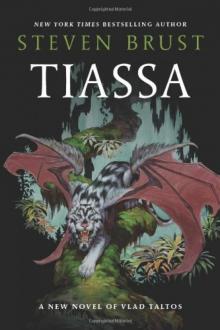 Tiassa
Tiassa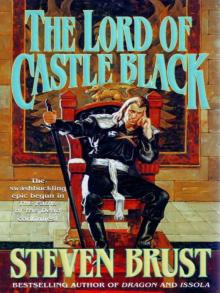 The Lord of Castle Black
The Lord of Castle Black To Reign in Hell: A Novel
To Reign in Hell: A Novel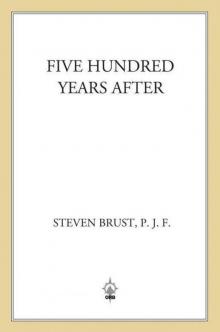 Five Hundred Years After (Phoenix Guards)
Five Hundred Years After (Phoenix Guards)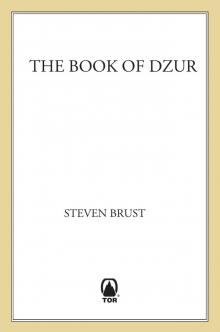 The Book of Dzur: Dzur ; Jhegaala
The Book of Dzur: Dzur ; Jhegaala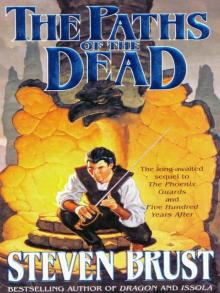 The Paths of the Dead
The Paths of the Dead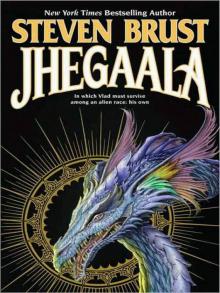 Jhegaala
Jhegaala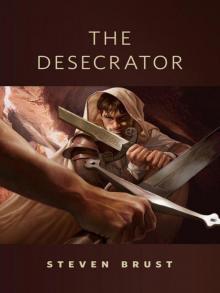 The Desecrator: A Tor.com Original
The Desecrator: A Tor.com Original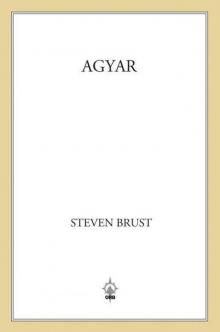 Agyar
Agyar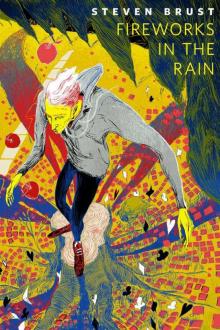 Fireworks in the Rain
Fireworks in the Rain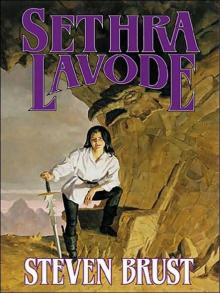 Sethra Lavode
Sethra Lavode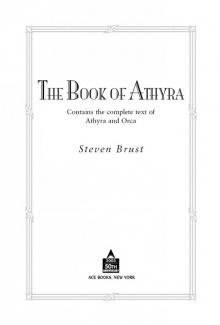 The Book of Athyra
The Book of Athyra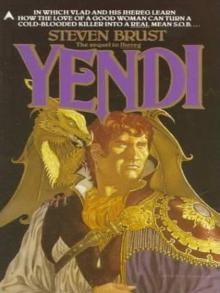 Yendi
Yendi Good Guys
Good Guys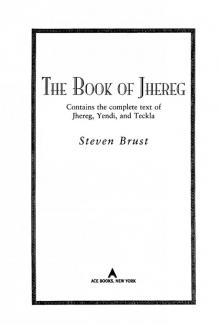 The Book of Jhereg
The Book of Jhereg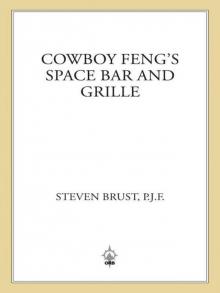 Cowboy Feng's Space Bar and Grille
Cowboy Feng's Space Bar and Grille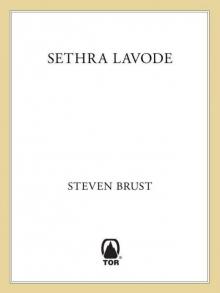 Sethra Lavode (Viscount of Adrilankha)
Sethra Lavode (Viscount of Adrilankha) My Own Kind of Freedom
My Own Kind of Freedom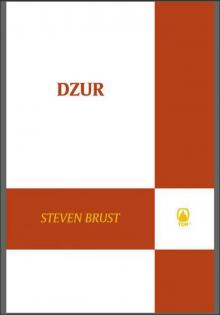 Dzur (Vlad Taltos)
Dzur (Vlad Taltos)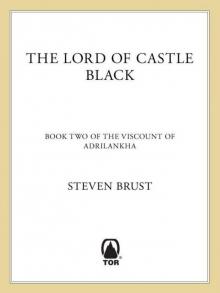 The Lord of Castle Black: Book Two of the Viscount of Adrilankha
The Lord of Castle Black: Book Two of the Viscount of Adrilankha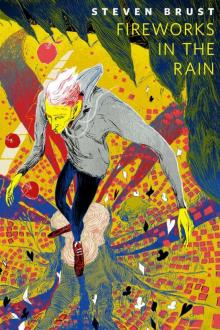 Fireworks in the Rain: A Tor.Com Original
Fireworks in the Rain: A Tor.Com Original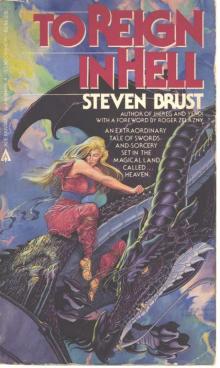 To Reign In Hell
To Reign In Hell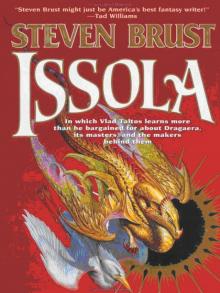 Issola
Issola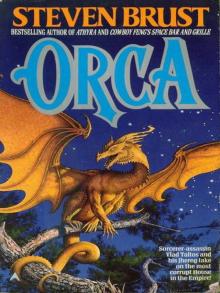 Orca
Orca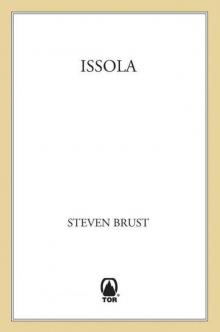 Issola (Vlad Taltos)
Issola (Vlad Taltos)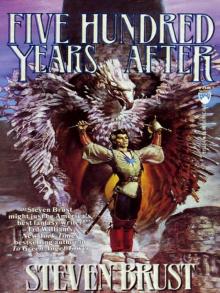 Five Hundred Years After
Five Hundred Years After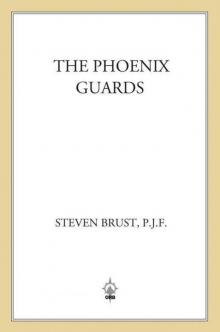 The Phoenix Guards
The Phoenix Guards Taltos
Taltos![[Vlad Taltos 06] Athyra Read online](http://i1.bookreadfree.com/i1/03/24/[vlad_taltos_06]_athyra_preview.jpg) [Vlad Taltos 06] Athyra
[Vlad Taltos 06] Athyra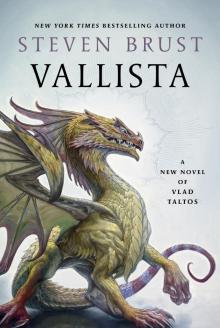 Vallista--A Novel of Vlad Taltos
Vallista--A Novel of Vlad Taltos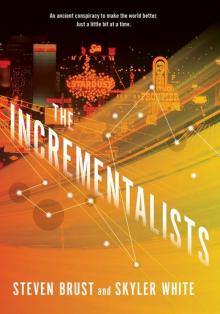 The Incrementalists
The Incrementalists![[Vlad Taltos 04] Taltos Read online](http://i1.bookreadfree.com/i/03/24/[vlad_taltos_04]_taltos_preview.jpg) [Vlad Taltos 04] Taltos
[Vlad Taltos 04] Taltos![[Vlad Taltos 03] Teckla (v 1.1) Read online](http://i1.bookreadfree.com/i1/03/27/[vlad_taltos_03]_teckla_v_1_1_preview.jpg) [Vlad Taltos 03] Teckla (v 1.1)
[Vlad Taltos 03] Teckla (v 1.1)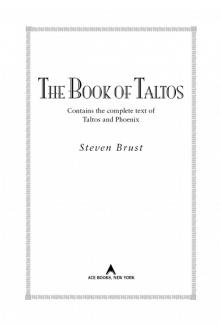 The Book of Taltos
The Book of Taltos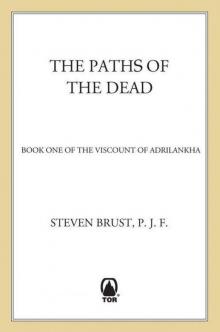 The Paths of the Dead (Viscount of Adrilankha)
The Paths of the Dead (Viscount of Adrilankha)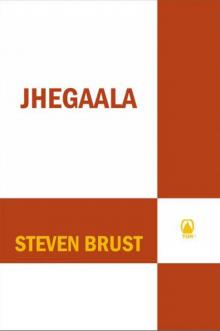 Jhegaala (Vlad Taltos)
Jhegaala (Vlad Taltos)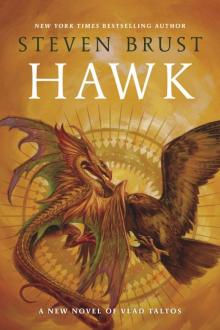 Hawk (Vlad)
Hawk (Vlad)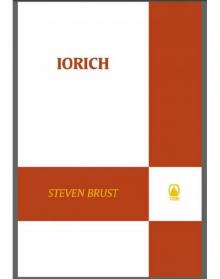 Iorich
Iorich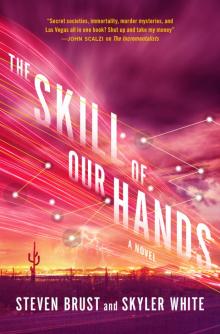 The Skill of Our Hands--A Novel
The Skill of Our Hands--A Novel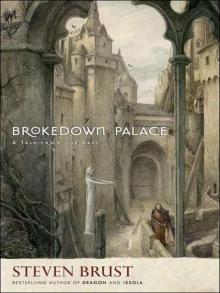 Brokedown Palace
Brokedown Palace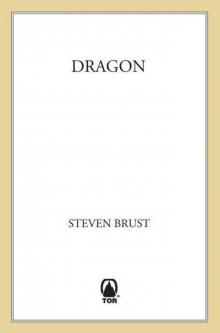 Dragon (Vlad Taltos)
Dragon (Vlad Taltos) Dragon
Dragon Athyra
Athyra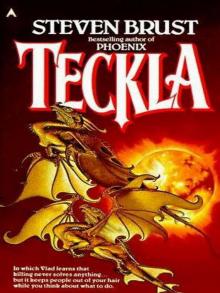 Teckla
Teckla Dzur
Dzur